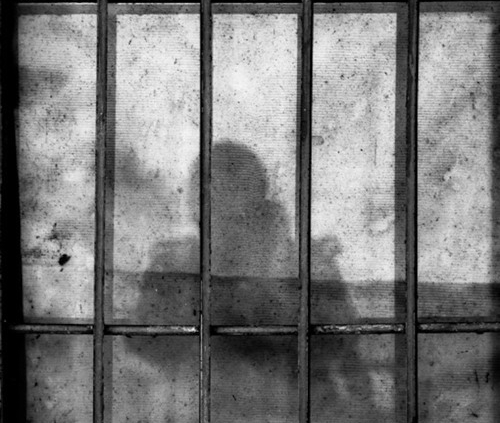Prisoner of Age
I have been in emotional and spiritual confinement. I am a senior-aged man and I have an older mother living nearby. Each day begins with worrying, continues with caring, and ends with anticipating. My “detention” is not about being an attentive son. My jailer is an inability to address my emotional health and spiritual resolve. In a sense, I feel like a hostage. My frustrations, disappointments, and fatigue constrain me. As I read the Torah this week, I may have found a key to unlock my imprisonment.
Parshat Ki Tisa opens with a census. Each man paid a half-shekel as ransom to God for himself. How odd this directive is, as typically we pay ransom to free a captive. How can we be captive to God? Perhaps, we are spiritually and emotionally hostage when we displace our sense of Divinity. Here are some examples. Either we are cursed by rain-quashed plans or grateful for abundant water. Either we are disappointed by our failings or encouraged by what we learn from failure. Perhaps we are troubled by our health challenges, or we appreciate the abilities we retain. In these ways, we can either be hostage to our spiritual and emotional expectations or we are freed by paying a ransom of gratitude.
The payment of a half-shekel for freedom is merely a symbolic act. The ransom is a physical demonstration of our appreciation for the gifts given by God. Of course, God does not need our shekels. Rather, the community benefits when we ransom ourselves from self-doubt, longing, anger, and fear. We engage better with family and friends as we focus on appreciation rather than dissatisfaction. When we are grateful we are willing to give more of ourselves – not just shekels. Gratitude is the key to unlocking our emotional and spiritual prison cells so that we can better engage with others and in the community.
Only a handful of my friends still have parents alive, often nonagenarians. Along with advanced age comes great challenges, for both the parent and their mature children. In my 60’s I’m already confronting my issues of an aging body and even my mortality. All the while, I ransom my sanity and spirit with gratitude for the gifts of having my mother nearby and the blessings of what I can continue to achieve. I regularly provide a half-shekel of patience, kindness, and dedication to my mother. The greater challenge is “Can I do that for myself?”
For myself, I often struggle against my aging process. Poet Dylan Thomas urged that we “rage against the dying of the light.” As we age, Thomas railed that we “not go gently into that good night.” Alternatively, I can pursue gratitude. My teacher, Rabbi Zalman Schachter-Shalomi, understood mortality as an instructor so that we might grow in generosity and gratitude. I am not a shadow of my younger self but rather I am a glowing beacon of acquired wisdom and demonstrable love.
Without a practice of redeeming ourselves, we are groping in the dark, feeling confused and lost. We cannot escape from our captivity unless we continue to ignite meaning in our lives. For me, the meaning that informs my life is a Divine inspiration to improve the world. As Psalm 142 says: “Free me from prison, so that I may praise Your name.” The key to our freedom is to pay a ransom of gratitude to God.
Rabbi Evan J. Krame






 Evan J. Krame was ordained as a rabbi by the
Evan J. Krame was ordained as a rabbi by the